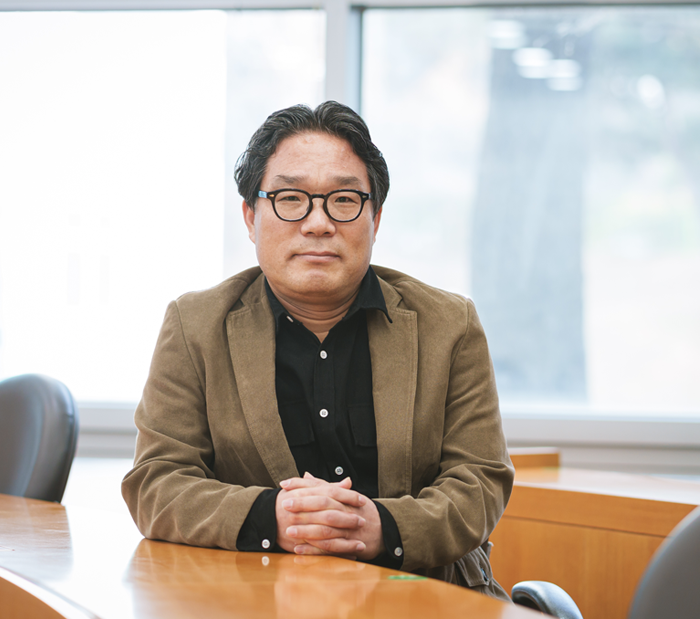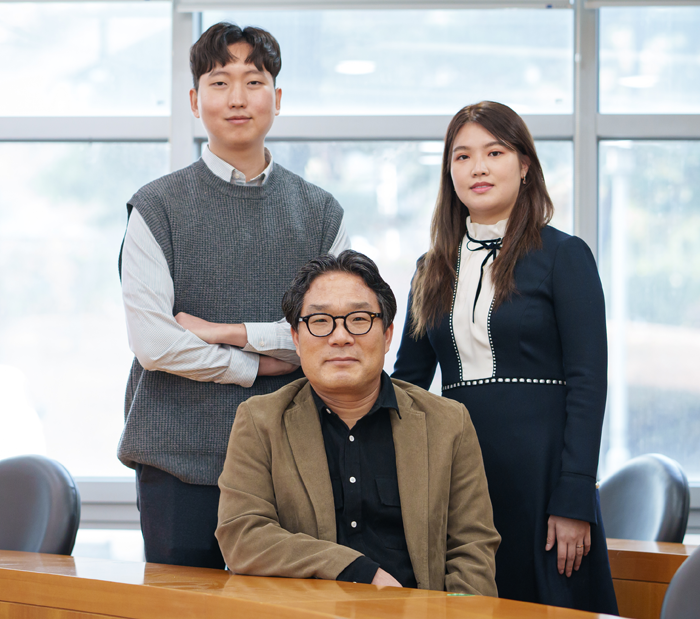Research Stories
Overcoming the limitations of antitumor immunotherapy by developing K-nanoadjuvant
The world's first development of Kinetically activating nanoadjuvant; K-nanoadjuvant, a novel concept in which immune activation functions are dynamically tuned so that therapeutic immune cells can generate effective anti-tumor immunity while minimizing exhaustion.
SKKU Advanced Institute of Nano Technology
Prof.
LIM, YONGTAIK
Seung Mo Jin, Yeon Jeong Yoo
Prof. Yong Taik Lim’s research team (SAINT) developed the world’s first kinetically activating nanoadjuvant (K-nanoadjuvant), which enables therapeutic immune cells to generate effective antitumor immunity without exhaustion.
The research results were published in Nature Nanotechnology (IF: 39.213), a world-renowned academic journal in the field of multidisciplinary science.
Various drugs capable of effective innate immune induction, such as toll-like receptor (TLR) agonists, have been developed throughout the history of oncology. Although these drugs contribute to immune activation, they also cause immunotoxicity and exhaustion of immune cells, resulting in ineffective cancer immunotherapy overall.
To address these issues, researchers designed a nanoliposome-based novel TLR7/8a (timely activating TLR7/8 agonist; t-TLR7/8a) for the first time and revealed the efficacy of K-nanoadjuvant fabricated in combination with various TLR agonists.
A nanoliposome-based K-nanoadjuvant is a novel immune function-modulating platform that not only maximizes immune cell activation but also overcomes immune cell exhaustion induced by excessive immune responses. Such effect was achieved by coordinating optimized time, order, and combinatorial code of two different immunostimulants with different mechanisms of action which induce different signal transduction routes.
K-nanoadjuvant solves the problem of current immunostimulants and has a high potential for clinical application, as previous research has proven the safety of nanoliposome-based platforms in the human body.
Researchers expect K-nanoadjuvant to be applied to immune checkpoint inhibitors unresponsive patient group, the latest anticancer therapeutic drug, and can be used as a next-generation anticancer therapeutic drug that can prevent recurrence/metastasis.


